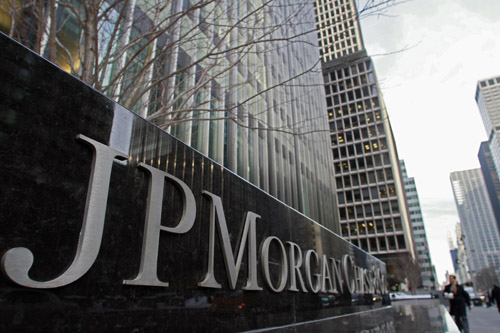
For the second year in a row on Tuesday, shareholders of JPMorgan Chase had a chance to vote on whether the company would divest its $3.5 billion worth of holdings in PetroChina and Sinopec, Chinese companies connected to the financing of Sudanese government-sponsored atrocities against its own citizens. The proposal, which JPMorgan Chase lobbied against, failed, but the increased backing of shareholders and public support offered by high-value institutions, such as large state pension funds, marked a positive trend.
The genocide-free investing shareholder proposal, designed by Investors Against Genocide, garnered 9.2 percent of votes, up from last year’s 7.69 percent. In addition, New York and Florida state pension funds expressed support for the proposal, which Investors Against Genocide said was “an unusual step for most institutions.” The New York State Common Retirement Fund is worth $140 billion and holds a $604.2 million stake in JPMorgan, according to CNN Money. In Florida, $292 million worth of the state’s $120 billion pension fund is invested in JPMorgan.
The proposal requests “that the board institute transparent procedures to avoid holding investments in companies that, in management's judgment, substantially contribute to genocide or crimes against humanity, the most egregious violations of human rights.” Investors Against Genocide Co-founder William Rosenfeld, a shareholder in JPMorgan stock, wrote about the initiative in a guest blog post for Enough in late April. “According to a market research study conducted by KRC Research in 2010, 88 percent of Americans would like their mutual funds to be genocide-free,” Rosenfeld wrote. “Investors Against Genocide intends to confront JPMorgan with this issue every year until they change their policy.”
JPMorgan Chase, the largest American holder of shares in PetroChina, says it is doing enough already. The board came out against the genocide-free investing proposal by saying that its policies "reflect our support and respect for the protection of fundamental human rights and the prevention of crimes against humanity." The board also noted that the “vast majority” of the shares JPMorgan owns are “at the direction of our customers, who are the share owners."
But the advocates’ and investors’ outrage has little to do with the scale of the investment. Reacting to the outcome of the shareholder vote and the board’s obstinacy, Rosenfeld said in a statement: “Why doesn’t JPMorgan at least demonstrate good faith by acting on the shares it directly controls? If 30 states, 61 colleges, TIAA-CREF, TRowe Price, and American Funds can all take steps to avoid investments tied to genocide, why can’t JPMorgan?”
True to its word, Investors Against Genocide is already gearing up for next year’s shareholder meeting. To continue boosting support, the group is focusing its outreach and awareness-building on institutions—rather than just individual shareholders—who collectively hold 74 percent of shares in JPMorgan Chase. Investors Against Genocide is also directing attention at Franklin Resources, the second largest U.S. holder of shares in PetroChina behind JPMorgan, with plans to file a shareholder proposal in time to appear on the company’s 2013 proxy ballot.
Photo: JPMorgan Chase's New York headquarters (AP)

